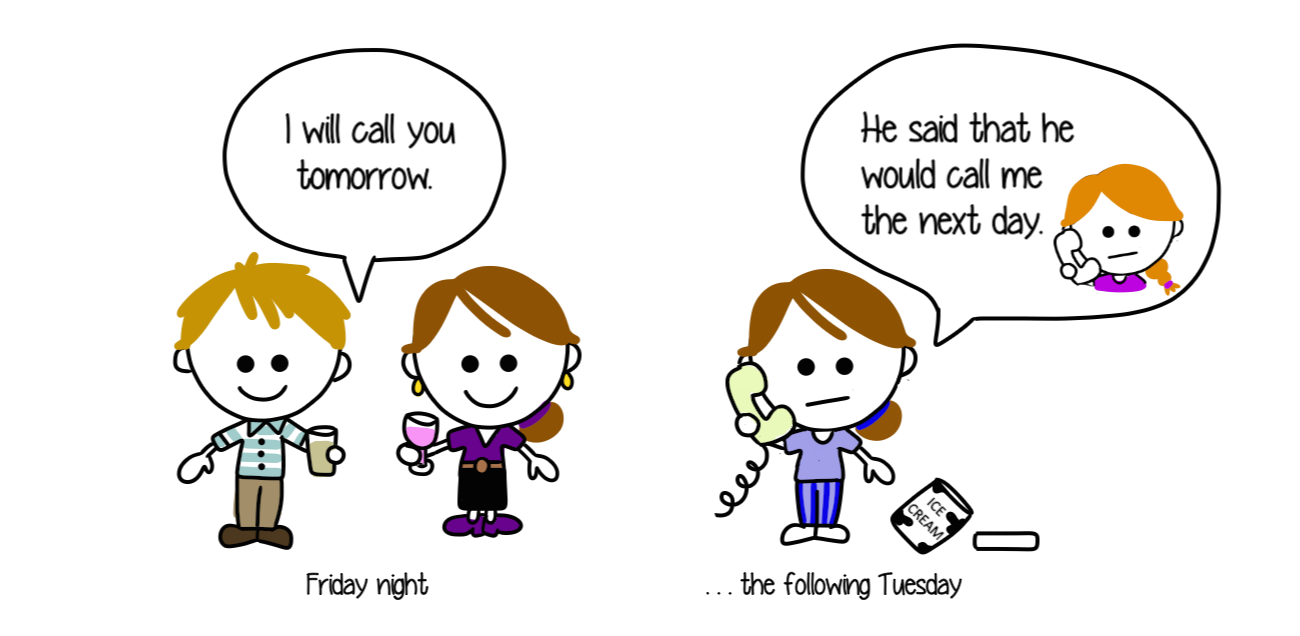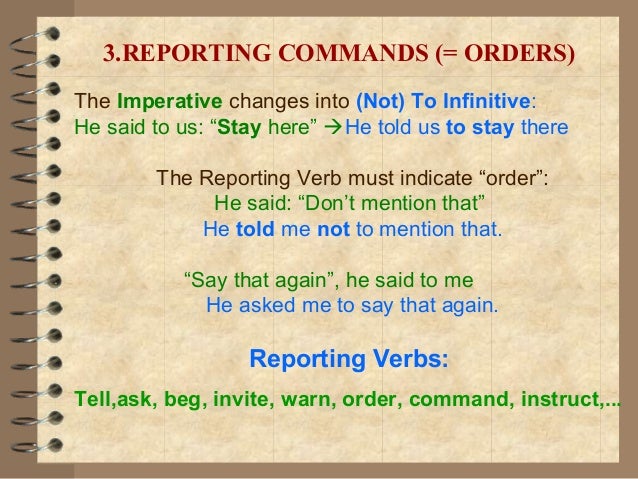THEN DO THIS EASY EXERCISE
TRY ANOTHER QUIZ
The verbs say and tell have similar meanings. They both mean "to communicate verbally with someone". But we often use them differently.
The simple way to think of say and tell is:
- You say something
- You tell someone something
| You say something | You tell someone something |
|---|---|
| Ram said that he was tired. | Ram told Jane that he was tired. |
| Anthony says you have a new job. | Anthony tells me you have a new job. |
| Tara said: "I love you." | Tara told John that she loved him. |
But, of course, it is not always so easy. Here are a few rules to help you.
Personal object
We usually follow tell with a personal object (the person that we are speaking to). We usually use say without a personal object:
We usually follow tell with a personal object (the person that we are speaking to). We usually use say without a personal object:
- She told me that she loved John.
- She said that she loved John.
- He told everybody that he had to leave.
- He said that he had to leave.
Say "to someone"
With say, we sometimes use "to someone":
With say, we sometimes use "to someone":
- He said to me that he was tired.
- Tara said to Ram that he had done very well.
- Anthony said to her, "I hope you come soon."
BASIC REPORTING VERBS: SAID OR TOLD?
CHANGES YOU MUST TAKE INTO ACCOUNT:
https://www.englishpractice.com/improve/rules-change-adverbs-indirect-speech/
This will change into that.
These will change into those.
Here will change into there.
Now/just will change into then.
Today will change into that day.
Yesterday will change into the previous day or the day before.
Last night will change into the previous night or the night before.
Tomorrow will change into the next day.
Ago will change into before.
The next day/week/year will change into the following day/week/year.
Hence will change into thence.
Thus will change into so or in that way.
Direct: He said, ‘I am too weak to work now.’
Indirect: He said that he was too weak to work then.
Direct: She said, ‘I will leave for New York tomorrow.’
Indirect: She said that she would leave for New York the next day.
Direct: He said, ‘I visited them yesterday.’
Indirect: He said that he had visited them the previous day.
Direct: She said, ‘I liked this bag.’
Indirect: She said that she liked that bag.
Direct: I said, ‘I am leaving tomorrow.’
Indirect: She said that she was leaving the next day.
Direct: She said, ‘These mangoes are rotten.’
Indirect: She said that those mangoes were rotten.
Direct: He said, ‘These are our dogs.’
Indirect: He said that those were their dogs.
REPORTED SPEECH: QUESTIONS
W-QUESTIONS
http://www.perfect-english-grammar.com/reported-speech.html
Reported Requests
There's more! What if someone asks you to do something (in a polite way)? For example:
- Direct speech: "Close the window, please"
- Or: "Could you close the window please?"
- Or: "Would you mind closing the window please?"
All
of these requests mean the same thing, so we don't need to report every
word when we tell another person about it. We simply use 'ask me + to + infinitive':
- Reported speech: She asked me to close the window.
Here are a few more examples:
| Direct Request | Reported Request |
| “Please help me”. | She asked me to help her. |
| “Please don't smoke”. | She asked me not to smoke. |
| “Could you bring my book tonight?” | She asked me to bring her book that night. |
| “Could you pass the milk, please?” | She asked me to pass the milk. |
| “Would you mind coming early tomorrow?” | She asked me to come early the next day. |
To report a negative request, use 'not':
- Direct speech: "Please don't be late."
- Reported speech: She asked us not to be late.
Reported Orders
And
finally, how about if someone doesn't ask so politely? We can call this
an 'order' in English, when someone tells you very directly to do
something. For example:
- Direct speech: "Sit down!"
In fact, we make this into reported speech in the same way as a request. We just use 'tell' instead of 'ask':
- Reported speech: She told me to sit down.
| Direct Order | Reported Order |
| “Go to bed!” | He told the child to go to bed. |
| “Don't worry!” | He told her not to worry. |
| “Be on time!” | He told me to be on time. |
| “Don't smoke!” | He told us not to smoke. |
MORE PRACTICE
LINK 1
TEST




